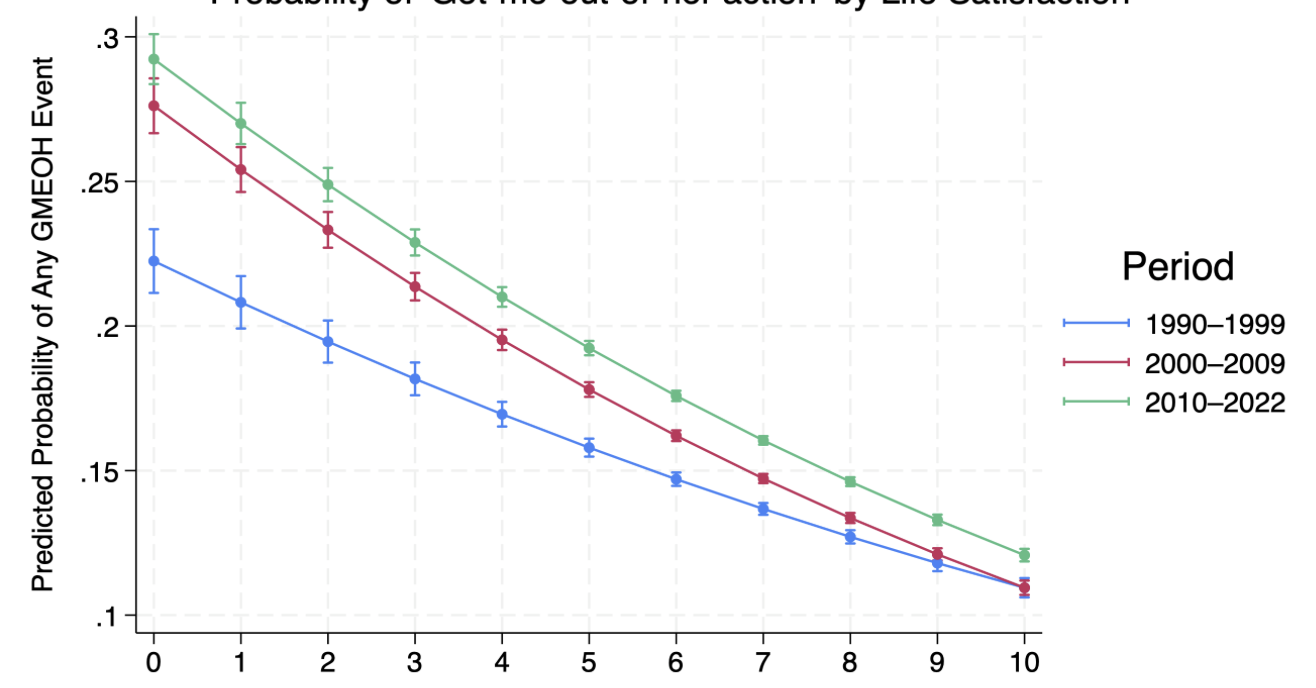If you are sending money to OpenAI, what would make you stop? For me, there is no ambiguity anymore. The line has been crossed.
Many publicly available signals are pointing towards OpenAI's lack of enthusiasm about AI safety while being quite enthusiastic about advancing AI capabilities as far as possible, even towards AGI. There have been several waves of people with AI safety views leaving OpenAI culminating in dissolution of superalignment team and it is hard to tell if OpenAI conducts any alignment research at all. I worry about the risk of advanced AI and no longer trust OpenAI to behave well when needed. Therefore I am cancelling my subscription and think others should as well.
I have basically written this post a few days ago but was waiting for Zvi to provide his summary of events in Open exodus. Predictably, he just did and it is much better summary than I would be able to provide. In the end, he writes:
Everyone needs to update their views and plans based on this new information. We need to update, and examine our past mistakes, including taking a hard look at the events that led to the founding of OpenAI. We should further update based on how they deal with the NDAs and non-disparagement agreements going forward.
My small update is cancelling GPT subscription and I think as many people as possible should do that. Paying for GPT and having my beliefs was, as of last week, debatable. Now, I think it is unjustifiable.
It is very simple. Sending money to a company that is trying to achieve something I worry about is not a good idea. They don't even have any plausible deniability of caring about safety now. On the other hand, they are definitely still at the leading edge of AI development.
I think AI risks are non-negligible and the plausible harm they can cause is tremendous (extinction or some s-risk scenario). Many people also believe that. But we arrive to really low probabilities when thinking about how much can an individual influence those large problems spanning large futures. We get very small probabilities but very large positive values.
In this case, we have really small probability that our 20 bucks/month will lead to unsafe AGI. But it definitely helps OpenAI, even though marginally. By this logic, sending money to OpenAI might be by far the most horrific act many people, including many EAs, regularly commit. Normal people don't have assumptions that would make them care. But we have them, and we should act on them. Cancel your subscription and refrain from using the free version, as your data might be even more valuable to them than the subscription money. Please spread this sentiment.
My summary of recent events
For the sake of completeness, if Zvi hadn't published his post, I had written this, leaving it here in a slightly draft-ish state:
All the people
People who are leaving OpenAI seem to have quite similar feelings about AI safety as do I and they seem to be very competent. They are insiders, they have hands-on experience with the technology and OpenAI's inner workings. Dario Amodei and around 10 other OpenAI's employees left in 2021 to found Antrophic, because they felt they can do better AI safety work together (https://youtu.be/5GtVrk00eck?si=FQSCraQ8UOtyxePW&t=39). Then we had the infamous board drama that led to Sam Altman’s stronger hold over OpenAI, and the most safety-minded people are there no more. Helen Toner of CSET, Tasha McCauley, former Effective Ventures board member, and Sutskever, who initially just left the board, now he has left OpenAI altogether. And finally, over the last few months, the remaining safety people have been pushed away, fired, or resigned https://www.vox.com/future-perfect/2024/5/17/24158403/openai-resignations-ai-safety-ilya-sutskever-jan-leike-artificial-intelligence .
Walk the walk
Founding the superalignment team (https://openai.com/index/introducing-superalignment/) led by Sutskever and Leike and promising 20% of compute to them sounded great. It still seems like it would much more likely happen in a worlds, where OpenAI's executives actually care about AI safety. But it didn't last. Leike tweets about "sailing against the wind" and it being harder and harder to conduct safety research.
I can't help but see the following string of events: "founding of the superalignment team (with an AI safety-minded board)", "board drama where AI safety people left", "superalignment effectively disbanded." A cynical reading would be that the superalignment team existed only because the temporary power balance allowed it, and as soon as the power center shifted towards Altman, he took actions that led to its dissolution.



I understand the sentiment, but for me it would be dangerously close to moral offsetting, which I am not fan of. E.g. animal welfare activist might say "eating factory farm meat in random restaurants saves me some time, which I am using to help animals". Or "eating meat is okay, because I am saving much more animals by donating to ACE recommended charities or something".
I think naive math checks out, but slightly broader conception of ethics would discourage such reasoning.
But to be more constructive, I subscribed to Antrophic's Claude. Claude Opus should be on similar level as GPT4 and I have much more trust in the company (but I am ready to abandon them if they fail to live up my safety expectations).
But there is a lot of smaller companies that can do a lot with smaller models like Llama, like https://www.phind.com/, mainly targeted for coding. Companies like those don't have huge AI ambitions, they are just (very well) leveraging current technology provided by big players to make an useful product.